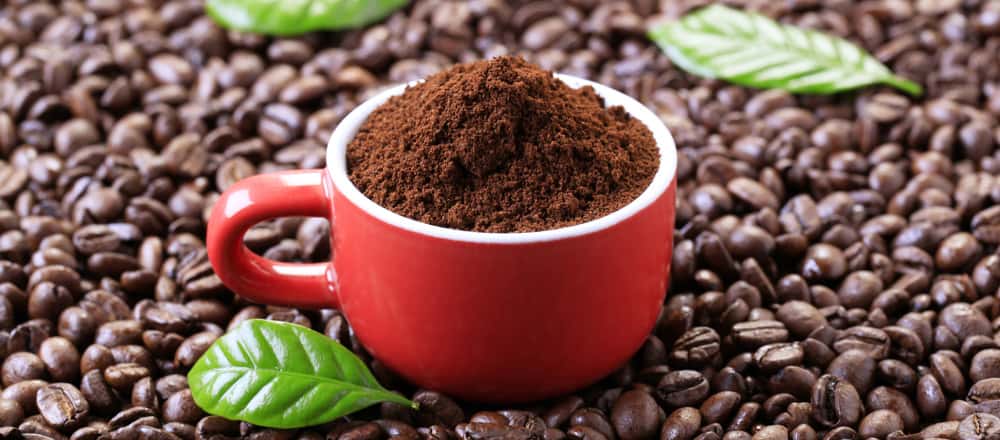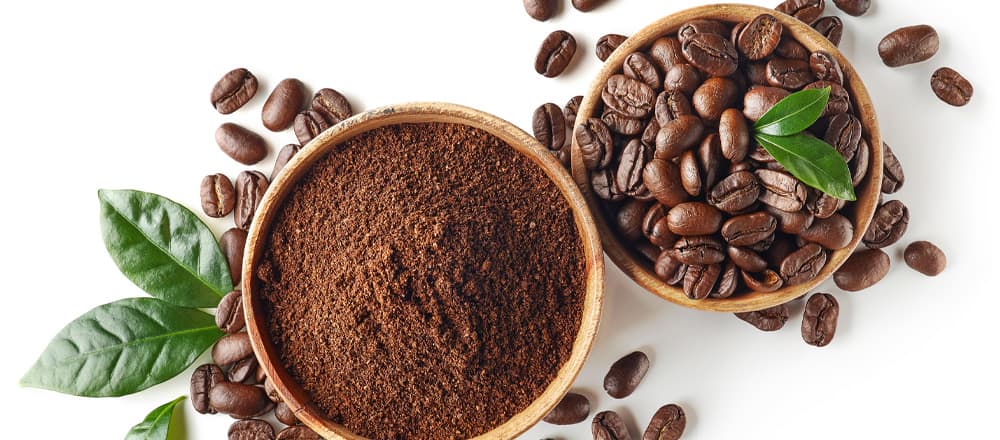Is Coffee Acidic or Alkaline?

There are several reasons why someone would brew up a cup of Fresh Coffee. Great taste is, undoubtedly, high on the list. Caffeine in Coffee, too, is a worthwhile endeavour. But is Coffee acidic or alkaline for those looking for balance in their diet?
Allow us to show you the facts in the following article, provided by the folks here at The Kent and Sussex Tea and Coffee Company.
Perhaps best of all, once you’ve learnt everything you need, you can buy the finest Coffee Beans or even Loose Leaf Tea from us online or in-store. Since 1982, our family-run business has taken tremendous pride in packing our products fresh to order from our Pluckley-based factory.
This ensures not only quality but also consistency from first to last sip. Allow us now to show you whether Coffee is acidic or alkaline.
Table of contents

What is Acidity and Why Does it Make a Difference?
Differences exist between acid-forming products and products with acidic pH. The former is what promotes acidity in the body. The latter is what we’ll be focusing on here. The term “pH” refers to a measure of acidity; the lower the value, the more acid in food or drink. Lemon juice is a prime example, as most would agree it is acidic in nature and, as a result, has a pH value of about two.
On the other side of the scale is something like dairy milk, which has pH levels anywhere between 6.5 and 6.7. These principles also apply to milk alternatives for Tea and Coffee. But why does it matter either way?
Despite having questionable science behind them, Alkaline diets have become increasingly popular for combating acid reflux or teeth issues. Which prompts the question: Is Coffee acidic?

Is Coffee Acidic or Alkaline?
Almost all types of Fresh Coffee have an average pH value of 4.85 to 5.10. This makes them relatively acidic. However, other factors during the Coffee Process might influence the acidity of the beans.
Perhaps most impactful is roasting; the longer the duration and the higher the temperatures, the less acidic it will be. Lighter roasts, as a result, tend to be higher in acidity, while darker roasts are lower.
Another consideration is the brewing method. Evidence has found that Cold Brew Coffee is significantly lower in acidity than hot Coffee. Making Cold Brew Coffee requires more time and, therefore, appears less acidic.
Finally, the type of Grind you choose might have an effect. The smaller the ground, the greater the surface area exposed relative to volume. This then leads to more acid being extracted while brewing.

Does Coffee Cause Acid Reflux?
We’ve established that Coffee is acidic. But what does it mean for Coffee and acid reflux? In other words, can too much Coffee cause acid reflux?
This common condition – better known as heartburn – is characterised as a burning pain in the lower chest area. It occurs when acid in the stomach flows back up into the food pipe (oesophagus). And the truth is that some might experience it from drinking Coffee.
The reason is that it might relax the oesophagal sphincter, which, in turn, can increase the risk of heartburn. Preliminary research suggests that Caffeine in Coffee appears to be the culprit. However, studies are inconclusive. I
f it is indeed caffeine causing the issues, then would that make Decaf Coffee a better choice for combating acidity? Now that’s the question.

Is Decaf Coffee Acidic?
Is Decaf Coffee less acidic than regular Coffee? And could it be better for you than its caffeinated counterpart when you have a history of acid reflux?
It does seem to have lower acidity, albeit only minimally, with a pH value of around five. The best news is that it is unlikely to lead to heartburn due to the limited amount of caffeine following the decaffeination process.
But it does come at a small cost. According to a 2014 study published in the Brazillian Archives of Biology and Technology, decaffeinating for a Low Acid Coffee removes antioxidants as well as caffeine.
This means that despite not increasing acid reflux risks and keeping you up at night, it might not be as health beneficial. Should you not much mind about such a factor, though, then you have nothing to lose.

Do Coffee Grounds Add Acid to Soil?
Not everyone discards their used Coffee beans after draining their cup. Some people, in fact, find ways to recycle Used Coffee beans, including scattering them on soil for nutrient enrichment.
But is it a good idea, after all? Could the acidity of Coffee cause negative effects on your garden? It turns out that there is a distinction between fresh Coffee grounds, which are acidic, and used grounds, which are near neutral.
The bottom line is that if you rinse your used Coffee grounds, they will have a pH of 6.5 when you put them in the soil. They will then provide essential nutrients – constituents such as nitrogen, calcium, potassium and iron – needed for optimal plant growth.
Additionally, according to a 2009 study published in the Journal of Bioresource Technology, they compost well – a win on all fronts, then.

Summary to Is Coffee Acidic or Alkaline
This article has determined the meaning of acidity and pH levels before examining whether Coffee is acidic, which it is. There is a chance, too, of it causing acid reflux, though the chances are reduced with Decaf Coffee.
Another possibility is to take used Coffee grounds, which have lost their acidity, and scatter them over the soil to boost nutrients. All that’s left is to browse our vast selection to find the brew for you.

 Loose Leaf Tea
Loose Leaf Tea Pyramids
Pyramids Tea Bags
Tea Bags Africa
Africa Assam
Assam Ceylon
Ceylon Chinese
Chinese Darjeeling
Darjeeling European
European Indian
Indian Japan
Japan Nepal
Nepal South East Asia
South East Asia Ayurveda Tea
Ayurveda Tea Black Tea
Black Tea Chai Tea
Chai Tea Flowering Tea
Flowering Tea Fruit Tisanes
Fruit Tisanes Green Tea
Green Tea Herbal Tea
Herbal Tea Matcha Tea
Matcha Tea Oolong Tea
Oolong Tea Organic Tea
Organic Tea Pu erh Tea
Pu erh Tea Rooibos Tea
Rooibos Tea White Tea
White Tea Asian Coffee
Asian Coffee Caribbean Coffee
Caribbean Coffee Central American Coffee
Central American Coffee South American Coffee
South American Coffee Coffee Blends
Coffee Blends Decaffeinated Coffee
Decaffeinated Coffee Espresso Coffee
Espresso Coffee Ethically Sourced Coffee
Ethically Sourced Coffee Flavoured Coffee
Flavoured Coffee Organic Coffee
Organic Coffee Single Origin Coffee
Single Origin Coffee Chocolate 1
Chocolate 1 Chocolate 2
Chocolate 2 Chocolate 3
Chocolate 3 Chocolate 4
Chocolate 4 Chocolate 5
Chocolate 5 Chocolate 6
Chocolate 6 Chocolate 7
Chocolate 7 Chocolate 8
Chocolate 8 Chocolate 9
Chocolate 9 Loose Tea Filters
Loose Tea Filters Tea Accessories
Tea Accessories Tea Bricks
Tea Bricks Tea Caddies
Tea Caddies Tea Caddy Spoons
Tea Caddy Spoons Tea Gift Ideas
Tea Gift Ideas Tea Infusers
Tea Infusers Tea Strainers
Tea Strainers